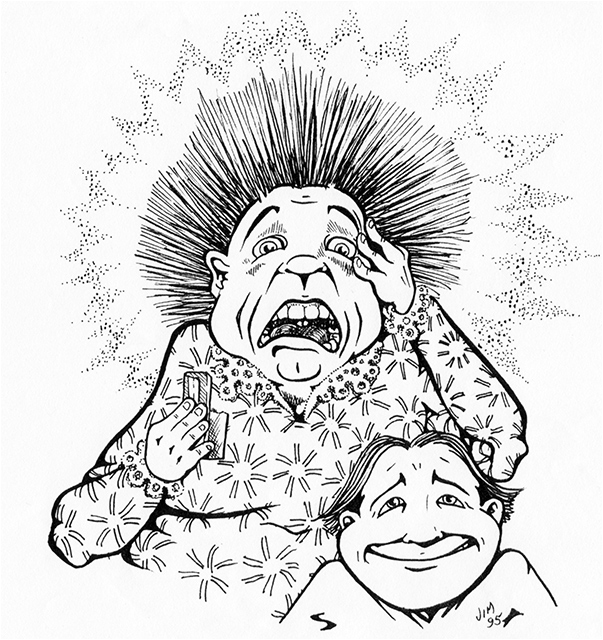Worried about child’s drug use?
Worried about child’s drug use?
First of all – DON’T PANIC!
Many young people experiment with ‘drugs’. Most will not come to any harm. The most helpful thing you can do is to stay calm, be there for your child and keep talking openly and honestly with each other.
Who uses drugs?
Well, we all do. Doctors prescribe them, chemists sell them and many of us enjoy the occasional alcoholic drink. The use of cigarettes is a harmful but socially acceptable drug habit. Caffeine (in tea and coffee) isn’t normally seen in the same light as cannabis, ecstasy or heroin but it’s a drug too. You may think of ‘drugs’ as being just illegal substances, but it’s important to include legally available substances, medicines and products like solvents and aerosols too.

Your child on drugs?!
Why do people use drugs?
Drugs change how we feel, our behavior and how our bodies work. Some drugs can dramatically alter a person’s perception of the world around them. When someone first uses a substance they don’t know what it will do to them. It’s fair to assume that someone who experiments with a drug expects to have a ‘good’ time, but not everybody enjoys the experience. People generally choose to use a drug to enhance how they feel, to avoid how they feel, or because drug use is a ‘normal’ part of their environment. They might want to party, celebrate, relax or increase their energy. They might want to get away from stress, boredom or feelings that are difficult for them to deal with. Friends might be using the drug and the person feels they want to take it to ‘fit in’. Some drugs are advertised – who do you see sponsoring cricket, motor racing and snooker? Taking a drug might be the only way a person feels able to be ‘in control’ of their life.
How can I tell if my child is a drug user?
What do drug users look like? What images do phrases like ‘drug addict’ and ‘alcoholic’ conjure up in your mind? Drug users look just like everybody else. Some are homeless or unemployed, and some are doctors or lawyers. Some are old, some are young. Holding onto stereotypes and judgements about drug users can prevent open and honest communication about drugs. After all, you use drugs which stereotype fits you?
Sometimes drug use can cause noticeable changes in mood or behavior. Here’s a list of some common effects: Sudden mood swings Irritability or Aggression Becoming very friendly and huggy Confusion Anxiety and paranoia Increase or decrease in appetite Loads of energy Not wanting to get out of bed Being furtive or secretive Do you recognise any of this? Of course you do. It could all just be part of ‘growing up’. Or it could be that something else is going on. Don’t your moods change on different days? A more obvious sign could be finding unusual powders or tablets that you don’t think are medicines.
Who’s to blame?
If your child uses drugs IT’S NOT YOUR FAULT! You’re not a ‘bad parent’ or a parent who has ‘failed’ if your child is a drug user. Your child is responsible for their own actions, just as you’re responsible for yours. Sometimes parents find it difficult to believe that their child has freely chosen to use drugs. It’s easy to blame the person who sold them the drugs, or the friends they use drugs with.
Whether you think it’s ‘right’ or not it’s important to acknowledge that the choice to use or not remains with your child. If this seems strange to you, think about alcohol – a very powerful depressant drug. Someone could take you to the local pub, encourage you to have a drink or even buy you a drink. Ultimately, the choice to drink or not is yours. Young people have lots of ‘new’ choices to make as they become young adults. What clothes to wear, what music to listen to. What course of study to follow or job to seek. Choices about sexual behavior. Choices about drug use. At the moment about one in three fifteen year old’s are choosing to use a controlled (or ‘illegal’) drug. Almost all drink alcohol.
What about the dangers of drug use?
Not everybody who uses a drug has a drug ‘problem’. The people who develop serious problems with their drug use are usually people who are using to avoid something in their lives – difficult feelings, stress, relationships, pain or maybe boredom. Most people who use drugs don’t become dependent on them. How many people do you know who drink alcohol? How many of those people have a real problem with their drinking? There are real risks involved when people take controlled drugs but most of the risks can be reduced. Someone who uses a drug has to become informed about drug use if they want to make it safer.
What should I do?
There isn’t anything you can do that will guarantee your child doesn’t use or stops using. Unless you isolate your child from the rest of the world they will still be ‘out there’ exercising their free will (and taking risks). It’s important to RESPOND rather than REACT. If you shout, blame, threaten or just go ballistic then you’ll find it difficult to keep talking. Count to ten, breathe and try to be as open as possible. Talk to someone else before you talk to your child.
Call one of the help lines below to get more ideas about what you can do. If your child does have a problem they need you. Keep communicating. If they don’t have a problem, it could be a valuable opportunity to show them that you can talk about things, even if you don’t understand or approve.
